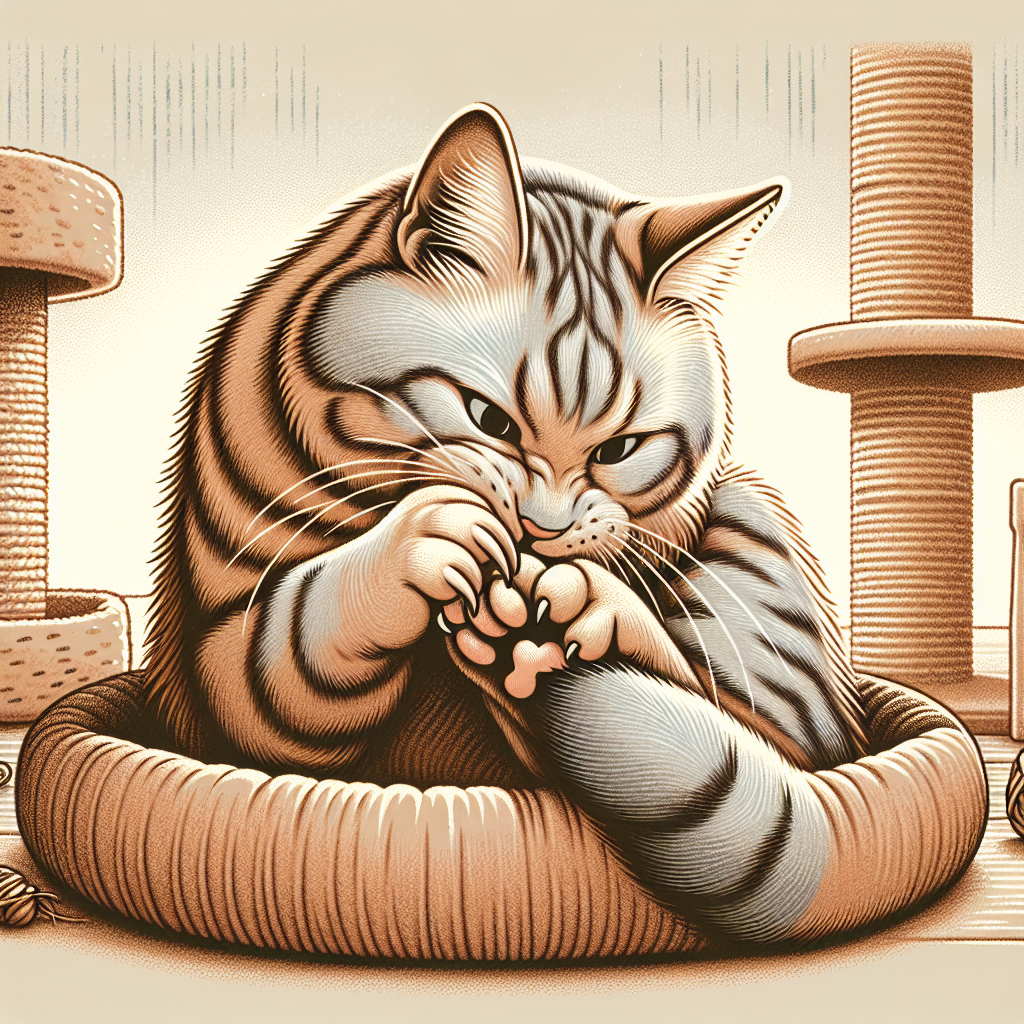===
If you’ve ever caught your feline friend gnawing on their own claws, you may have found yourself puzzled and concerned. Understanding the behavior of cats can be as intricate as their personalities. When it comes to the peculiar habit of nail-biting, it often raises numerous questions among pet owners. Why does my cat bite his nails? This common, yet often misunderstood behavior can signify a range of underlying issues, from stress to boredom. Recognizing these patterns is crucial in ensuring the well-being of your beloved pet. In this article, we will delve into the reasons behind this behavior and provide invaluable insights into what it means for your cat.
Exploring the Reasons Behind Nail-Biting in Cats
Cats are creatures of habit, and their behaviors often stem from instinctual needs. One possible reason for nail-biting is grooming. Cats are fastidious groomers, and their claws are a part of their self-care routine. They may bite their nails to remove debris or dead material, ensuring optimal hygiene. This behavior is not uncommon, as cats instinctively groom to maintain their health and cleanliness. It’s essential, however, to observe whether this behavior is excessive, as it could indicate underlying issues.
Another reason for nail-biting in cats may be stress or anxiety. Just as humans might bite their nails in stressful situations, cats can display similar coping mechanisms. Changes in the environment, such as moving to a new home, the arrival of a new pet, or even changes in routine, can trigger anxiety in cats. When they feel threatened or uncomfortable, they may resort to nail-biting as a way to self-soothe. This behavior can be a red flag indicating that your cat is experiencing emotional distress.
Lastly, boredom might also be a significant factor contributing to nail-biting. Cats are intelligent and playful creatures that require mental stimulation and physical activity. When they lack sufficient engagement, they may turn to self-grooming behaviors out of frustration. Nail-biting can serve as a temporary distraction, alleviating their boredom, but it is not a long-term solution. Identifying the root cause of this behavior requires keen observation and understanding of your cat’s environment and routine.
Behavioral Insights: What Your Cat’s Nail-Biting Means
Recognizing the significance of nail-biting behavior can lead to a more profound understanding of your cat’s emotional state. If your cat bites his nails excessively, it may be a signal of underlying stress that warrants attention. Observing your cat’s overall behavior and correlating it with environmental changes can provide insights into their emotional health. For instance, if you notice increased nail-biting during stressful situations, such as loud noises or the presence of strangers, it might be beneficial to create a more calming environment for your pet.
In addition to stress, the act of nail-biting can also indicate potential health issues, such as allergies or skin conditions. Cats may bite their nails to alleviate discomfort caused by itching or irritation. If you observe other symptoms, such as redness, swelling, or bleeding, it is crucial to consult with a veterinarian. They can rule out any medical concerns and provide tailored advice for managing your cat’s grooming habits. The key is to recognize that nail-biting may not just be a quirky habit but a manifestation of deeper issues.
Understanding the context of your cat’s behavior is essential for implementing effective solutions. Engaging in regular playtime can significantly reduce boredom and stress levels, thus decreasing the likelihood of nail-biting. Additionally, providing your cat with stimulating toys or interactive activities can keep their mind occupied and fulfilled. If nail-biting persists despite these changes, consulting with an animal behaviorist may offer further guidance. They can help identify specific triggers and offer personalized strategies to enhance your cat’s emotional well-being.
===
Understanding why your cat bites his nails is crucial to fostering a healthy and happy environment for your furry companion. By recognizing the underlying motivations for this behavior, from grooming needs to stress and boredom, you can take actionable steps to address any issues. Whether it’s enhancing their environment, providing more stimulation, or seeking professional advice, the goal is to promote your cat’s overall well-being. Remember, a happy cat is a healthy cat, and your attentive care can make all the difference. If you have any further insights or experiences regarding your cat’s behavior, feel free to share them in the comments below. Engaging in discussions can provide additional support and tips to fellow cat owners looking to understand their pets better.
Measuring Your Dog’s Height: A Comprehensive GuideUnderstanding How Dogs Become Infested with FleasUnderstanding the Lifespan of Pug Dogs: What to ExpectRelevant LinkRelevant LinkRelevant Link
